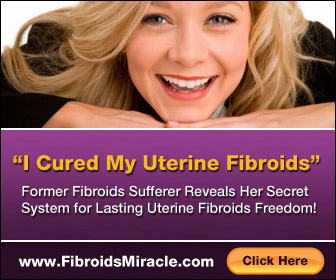Belly Issues Caused by Uterine Fibroids
It is logical to think that the area around the uterus will be affected when you have uterine fibroids. These are, after all, growths that are not supposed to be present in your body. Though non-cancerous in nature, these growths can cause serious symptoms when you are not properly examined, diagnosed, and treated. The good news is that most fibroids do not require treatment at all. But, you first have to find out exactly what it is that you have and get an accurate diagnosis from your doctor.
What You Might Feel
Those who have small fibroids will not feel anything. In fact, they might not find out that they have fibroids within their lifetime. Most women are likely to develop fibroids in their 30s right through their early 50s. By the time they reach menopause, their fibroids will start shrinking.
It’s a different story for those who have bigger fibroids. They are more likely to experience more painful symptoms. Their condition could make it difficult for them to do even the simplest chores and tasks. When the fibroids grow very large, they can also affect the patient’s physical appearance.
Not a “Belly” Good Situation
As the uterine fibroids are located in the abdominal area, it is reasonable to expect symptoms to affect the stomach. Large fibroids that put pressure on the stomach cavity, the bladder, or the rectum could cause upset stomach, abdominal pain, belly swelling, and bloating distention.
- Upset Stomach – a more common feeling when you have big fibroids is heaviness in the stomach. You feel like your stomach is full even if you have had very little to eat. That’s why some patients with fibroids also experience drastic weight loss.
- Abdominal Pain – pain is particularly felt in the lower abdomen when the fibroids are large. In the case of pedunculated fibroids, a sharp pain is usually felt when the stem is twisted and the blood supply to the fibroids growth is stopped.
- Belly Swelling and Bloating Distention – fibroids can make a patient look like she’s several months pregnant. Ironically, pregnancy is not usually possible for someone with fibroids. In extreme cases, the bloating might be too big as to cause difficult for the doctor to do a pelvic exam.
Easing the Pain
There are several solutions to help patients ease the pain and discomfort in the abdominal area due to fibroids. The first option for those who can still endure what they are experience and those who do not want to opt for invasive procedures is pain management and fibroids reduction. This simply means taking pain relief medication and hormonal pills to decrease the size of fibroids.
For those with more severe cases, the recommendation would most likely be surgery. The patient may choose to have just the fibroids removed in a myomectomy or have the entire uterus removed in a hysterectomy. There are pros and cons to both procedures, but hysterectomy is often preferred especially when the patient has no intentions of bearing more children in the future. The complete removal of the uterus along with the uterine fibroids is the only complete and permanent cure to avoid symptoms and effects like upset stomachs and other belly issues.


